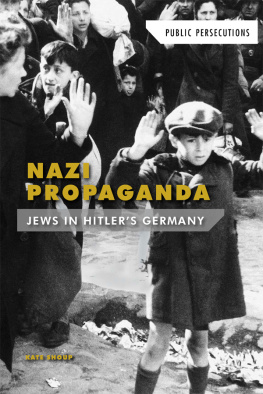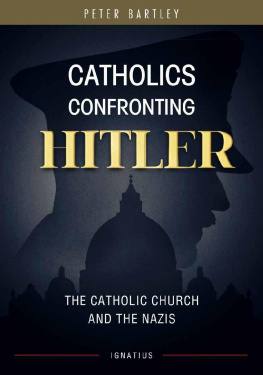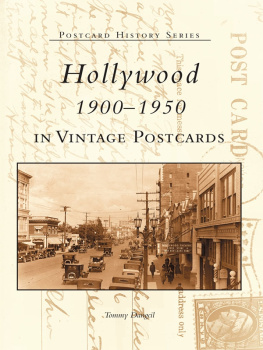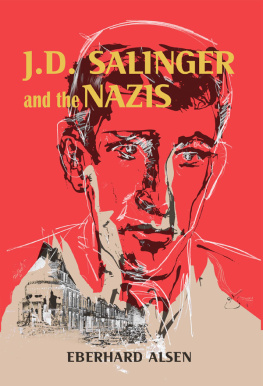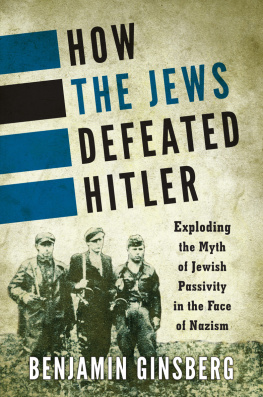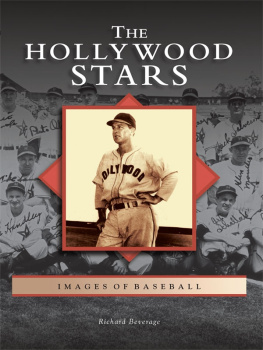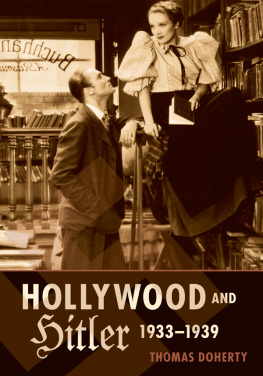Contents
Guide
Pagebreaks of the print version
More Praise for Hitler in Los Angeles
A remarkable tale, one that pits a secretive, chess-playing Jewish spymasterattorney Leon Lewisand a group of courageous German-American war veterans that he recruited as his spies against a cast of villains straight out of a classic Warner Bros. film Mr. Ross has a novelists eye for characters and detail. The Wall Street Journal
Reveal[s] the hitherto untold story of Jewish resistance to Nazi infiltration, not in Berlin or Warsaw but in Los Angeles during the 1930s, a time when Nazism, a distant rumble on the horizon for most Americans, was for tens of thousands of others a siren call to action Ross has a blockbuster revelation. The Chronicle of Higher Education
Nazis, spies, assassination plots, a planned putsch to topple Franklin Rooseveltthese are the ingredients for a World War II movie. But in Steve Rosss compelling history, they make for a true-life thriller about an episode that has been almost completely ignored: the attempt by the Nazis to take over America. Neal Gabler, author of Walt Disney
The director of the Casden Institute for the Study of the Jewish Role in American Life and an award-winning film historian, Ross tells a shocking story of Nazi efforts to infiltrate America Ross puts his experience in film history to good use, and he creates lively portraits of the men and women whom Lewis recruited as spies and who succeeded in putting some dangerous Nazis behind bars. A vivid history of homegrown resistance. Kirkus Reviews
[This] nonfiction revelation reads like an exciting spy novel. Ross reveals this true story of resistance by American Jews and Gentiles with an exciting, evocative writing style. New York Journal of Books
Steven J. Ross has the verve of a spellbinding novelist and the skill of a master historian. This story has every bit the drama of Roths The Plot Against America or Dicks The Man in the High Castle , except it actually happened! The all-important takeaway of Hitler in Los Angeles ? Good people can and must prevail against bad. David N. Myers, president/CEO, Center for Jewish History
Thrilling Dramatic. Daily Express
This is a truly brilliant history by a superbly talented historian. More importantly, its a damn fine read, a true-life thriller thats a powerful reminder of how hate, if left to fester, can destroy us all. Alex Kershaw, author of Avenue of Spies
A riveting and terrifying chapter of Nazi American history Ross has a flair for thriller-writing and this history is a captivating read Enthralling Important and compelling Hitler in Los Angeles is crammed with twists and turns involving double-agents, movie stars, and big-time studio moguls. Netflix needs to turn Hitler in Los Angeles into a television series. PopMatters
Readers interested in a detailed look at this spy operation can have confidence in this well-sourced account. Library Journal
Steven J. Ross, one of our foremost authorities on the entwined histories of American Jewry, domestic politics, and Hollywood, presents a chilling tale of the Nazi plot to destroy America; the small spy network who helped defeat it; and the official indifference to the threat posed by German agents and homegrown extremists bent on sabotage and political murder. Glenn Frankel, Pulitzer Prizewinning journalist and author of High Noon
Outstanding and compelling Parts of Hitler in Los Angeles read almost like a spy novel, except that these events reallyand frighteninglyhappened. Truthdig
This little-known chapter of 1930s historycaptured by Steven J. Ross with impeccable research and an intriguing narrativeneeds to be told; it will challenge assumptions about the power of citizens to shape world events from their own backyard. Ted Johnson, senior editor, Variety
Remarkable and meticulously researched. Times Higher Education


To my mother, Esther Ross, and the memory of my father, Benjamin Ross
And to the memory of my in-laws, Kurt and Olga Kent
BY THE SAME AUTHOR
Hollywood Left and Right: How Movie Stars Shaped American Politics
Movies and American Society
Working-Class Hollywood: Silent Film and the Shaping of Class in America
Workers on the Edge: Work, Leisure, and Politics in Industrializing Cincinnati, 17881890


CONTENTS
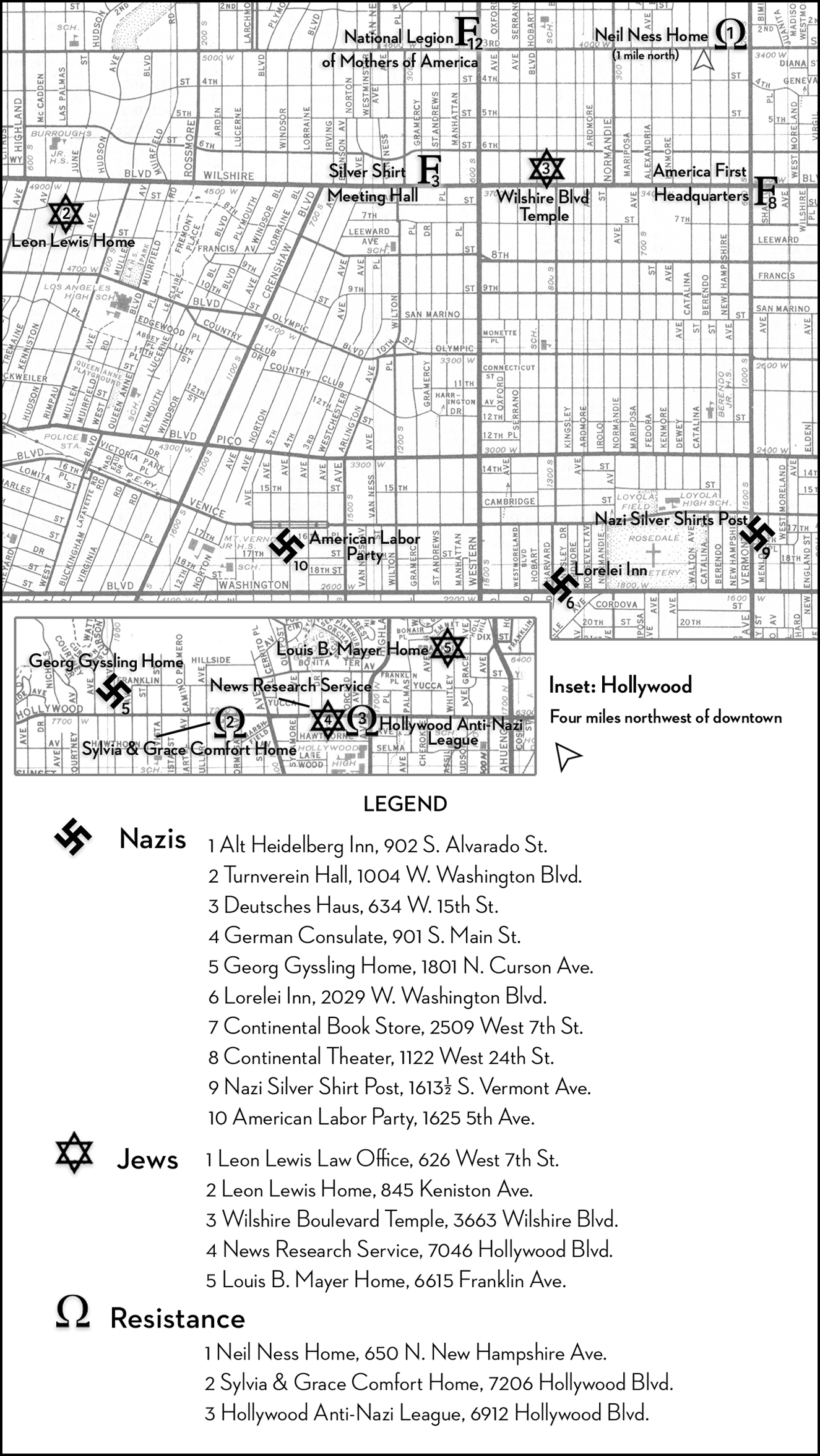

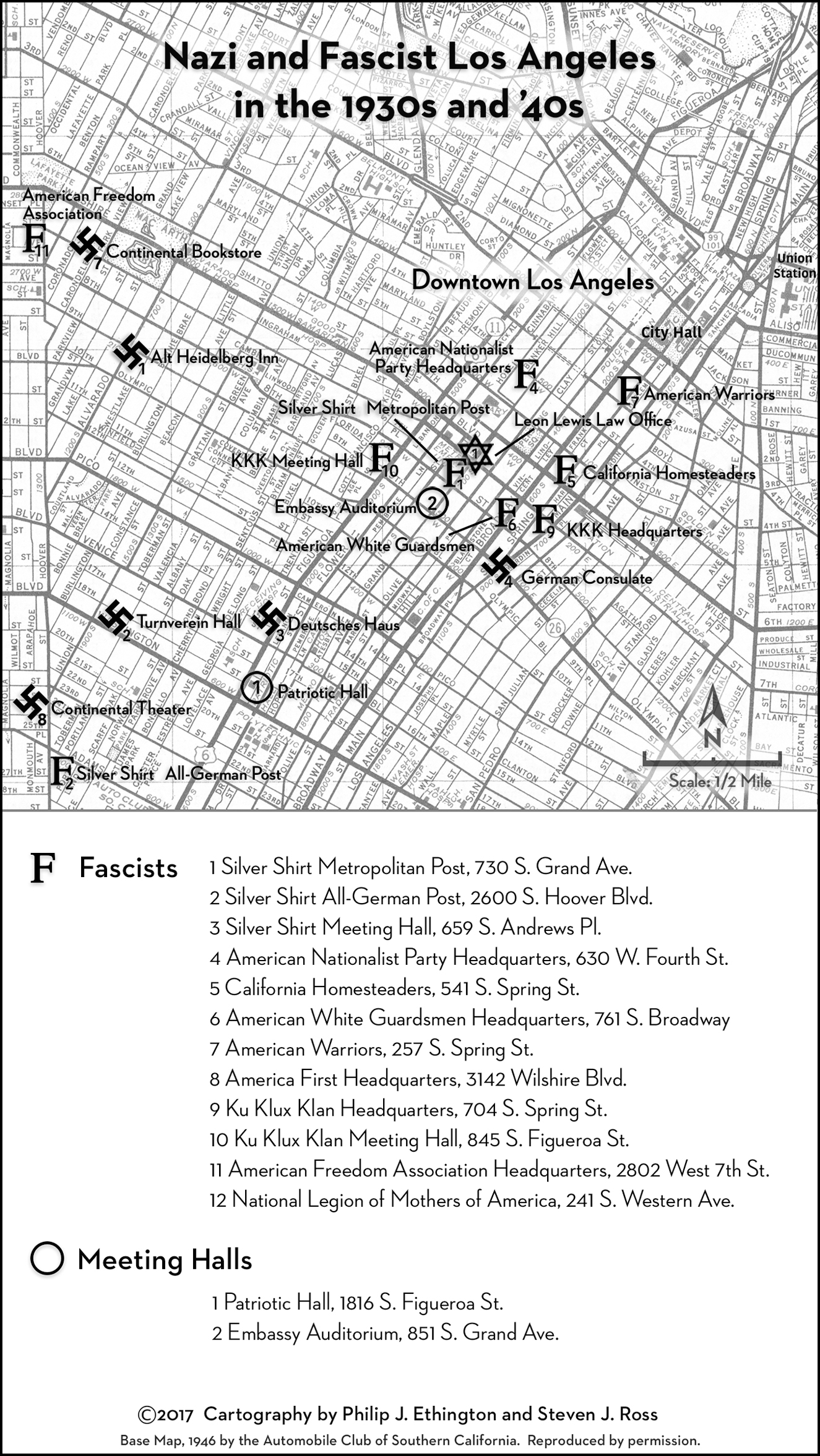

We will undermine the morale of the people of America Once there is confusion and after we have succeeded in undermining the faith of the American people in their own government, a new group will take over; this will be the German-American group, and we will help them assume power.
ADOLF HITLER, 1933
Every evening throughout my childhood, the Gestapo broke into our home and terrorized my mother. Some nights they would only drag her away; other nights they took her, my sister, and me to Gestapo headquarters. Each morning my mother, who had survived the Auschwitz, Bergen-Belsen, and Salzwedel concentration camps, woke up exhausted and drenched in sweat. And every morning she told me about her nightmares.
My father had no nightmaresat least, not ones he shared with his family. He simply never talked about his years in the Warsaw Ghetto or his time in Dachau. Ironically, Dachau is where he learned how to be a bakera skill he used when he came to the United States. Although he was not well-known beyond his circle of friends, for over three decades New Yorkers who patronized Zabars or Balduccis enjoyed his Russian coffee cake and strudels.
As a teenager, I wanted to know how these horrors could have happened to my parents and to millions of Jews. I swore that I would have fought to save them, and I did not understand how Jews could have been so passive in the face of such evil. Why was there not more resistance at home and abroad? I promised myself that one day I would try to answer these disturbing questions.
Yet for forty years I have been an American historian who ignored his own past. I have written about poverty in eighteenth-century New York City; experiments in free black labor conducted during the Civil War; nineteenth-century working-class history; and twentieth- and twenty-first-century Hollywood politics. It is now time to honor my youthful promise and write about the world of my parents and the millions of Jews who found themselves terrorized by Nazis and fascists, not just in Europe but also in the United States.
In the course of my research, I discovered that my youthful selfalong with many historianshad been asking the wrong question. Many American Jews did rise to oppose Hitler, but they could not agree on the best path of resistance. A divided strategy and inability to implement a single vision is not the same as passivity or a failure of will. Indeed, one might rightly ask why the U.S. government did not do more to stop the spread of Nazism and fascism at home. Why did local authorities in so many cities turn a blind eye to Nazi activities in their own backyards?


